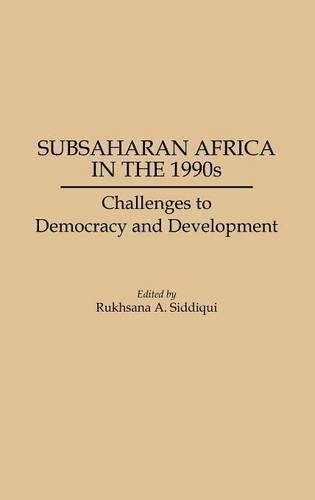
Subsaharan Africa in the 1990s: Challenges to Democracy and Development
(Hardback)
Publishing Details
Subsaharan Africa in the 1990s: Challenges to Democracy and Development
By (Author) Rukhsana A. Siddiqui
Bloomsbury Publishing PLC
Praeger Publishers Inc
25th June 1997
United States
Classifications
Tertiary Education
Non Fiction
Development economics and emerging economies
Ethnic studies / Ethnicity
Development studies
320.967
Physical Properties
Hardback
240
Description
The economic performance of African countries south of the Sahara generally has been poor during the past two decades. External factors such as high oil prices, deteriorating terms of trade and wars, and formidable internal factors such as corruption, chauvinism, authoritarianism and violence have continued to plague the region. Whereas in the 1980s the Sub-Sahara was overwhelmed by drought, devaluation and debt, the 1990s have brought the paradox of civil strife and a complex transition to democracy. This volume surveys the major political, economic, social, ecological and gender related aspects of Sub-Saharan Africa's struggle toward democracy. Its essays pose two fundamental sets of ideas: that the internal equilibrium can be restored only through institutional changes with these countries; and that the political and economic dilemmas in the region are closely related to issues of gender and the environment. The volume should be of interest to scholars and students of comparative politics, developmental economics and African studies.
Author Bio
RUKHSANA A. SIDDIQUI is Associate Professor at Quaid-i-Azam University in Pakistan. She holds a doctorate from the University of Pennsylvania, and has held teaching and research positions at Yale University, University of Dar-es-Salaam, and Bilkent University. Her books include Subsaharan Africa: A Subcontinent in Transition (1993) and Ideology and Socialist Transition in Tanzania (1988). She publishes in Annals of the American Academy of Political Science, Review of African Political Economy, and Canadian Journal of Peace Research.
